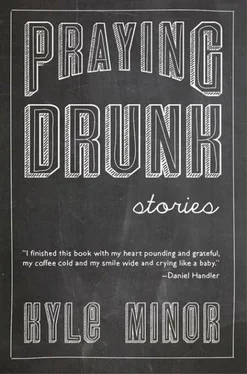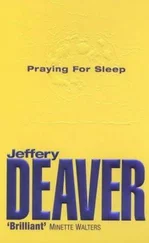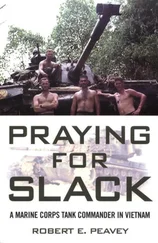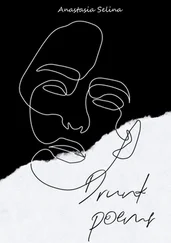So what I’m asking, Leslie, is this: You know me. We go back many years. At one time you even said you considered me like an older brother to you. So in that spirit of love and family, I’m asking you to go to Sheila Brocken’s father and tell him about me and what I have written you today. Explain to him that even though the circumstances are a little unusual, what with the geographic distance, the difference in age and everything, that this is a situation that seems to be coming from a source more powerful than our human minds can even contemplate, and that we all need to sit down here and try to listen to what God is telling us about his will for me and Sheila. And tell him he should listen to his daughter, too. It might be that I’m a fallible soul. I know I can be. I know I am. So we should see if Sheila is hearing the same thing from the Lord that I think I am hearing. And if it is so, that would seem to me to be a confirmation. We may not understand it, Leslie. Not you or me or Sheila’s father or Sheila herself. But it might be right, and we’d be wrong to miss it.
II.
Rev. Joseph B. Waddell, Director, Baptist Mission, Koulèv-Ville, Haiti, to Rev. Ervin Medlock, Caribbean Region Director, Foreign Mission Board, Richmond, Virginia, February 11, 1984.
I’m writing to thank you for your letter dated January 4, and for the good news about the record-breaking Lottie Moon Christmas Offering for Missions. Whatever y’all are doing up there in Virginia, the word must be getting out to the local congregations. I’m proud as punch, because we could sure use some help down here. You’ll see I’ve attached some documentation about some of the building programs we really need to initiate by March or April at the latest to accommodate the swelling need. There are other kinds of capital investments I’ve noted in those pages, too, chiefly our need for a second diesel generator and a couple of new trucks to facilitate the new outreach work we’re doing farther up into the mountains. Our first large-scale project up there involves clothes-washing and bathing stations that collect and concentrate the flow from various mountain springs, so that we can (1) help the people use more of the water from the sources they already exploit, (2) create sanitary barriers between the water people are collecting to drink and the water they are using for bathing and washing clothes, and (3) regularly test the water for various nasties that are making people ill or killing them. The government in Port-au-Prince is very high on the project, and once we get one up and running, if they see that it works, they have agreed to match our funds for the next five. This kind of goodwill is hard-earned. It is evidence of real divinely inspired progress with the temporal powers that be. For all of these things, we are truly thankful.
It is also my burden to keep you up to date about a staffing and spiritual life difficulty about which we have previously corresponded, that being the continuing saga of Brother Samuel Tillotson. For the sake of clarity, and for whatever records you might want to keep, let me catch you up again. Last May, we had the pleasure of a visit from a group of high school seniors from South Florida, whose job it was to do various camps to encourage our children and infirm, and, in the case of the able-bodied young men, to do some light maintenance around the mission. It was noticed by many staffers that Brother Tillotson, age 42, was spending an unusual amount of time around some of the young girls, particularly one by the name of Sheila Brocken. He and she were seen standing abnormally close at evening devotions, speaking idly in the lunch line, and — this unconfirmed rumor came to us thirdhand, and Brother Tillotson, when confronted, denied it — holding hands in the darkness beneath the mango trees that line three sides of our modest hospital.
None of these observations or whisperings alone would suffice to call Brother Tillotson’s reputation into question, but taken together, they certainly raised suspicion enough to invite a confrontation. We followed the Scriptural pattern. First, I went to Brother Tillotson alone and asked him about the talk that had come my way. He admitted to what he called a “brotherly affection” for the young girl, and pointed out that there was nothing inappropriate about friendships between brothers and sisters in Christ. Furthermore, he reminded me that the girl was eighteen years of age, and therefore an adult, not a child. He said that he had done nothing to violate Scripture, doctrine, or conscience, and that he resented my questioning.
I’ll admit that I went to see him in a spirit of distress. I was worried, frankly, about appearances. The school group that had visited included children from many of the families in the Palm Lake Baptist Association, a group of forty churches of which at least thirteen give directly to our mission in excess of the support they already offer the Foreign Mission Board. I fully expected Brother Tillotson to admit that he had been in some small ways inappropriate, for the two of us to make our peace with what had been, and agree to forge on anew. But his belligerence caught me unawares, and in my surprise, I did not summon up wisdom enough to recall for him the words of Paul to the Corinthians: “Wherefore, if meat causeth my brother to stumble, I will eat no flesh for evermore, that I cause not my brother to stumble.”
So I went to see Brother Tillotson a second time, and I took with me Brother Johnson and Brother Garvey. We confronted him again with what we had heard. Brother Garvey, in his gentle way, said, “Samuel, we come in a spirit of love. We’re not here to judge you. We’re imperfect people just like you. We’re not even saying you did anything wrong. We’re just asking you to think about avoiding the very appearance of evil, for the good of this whole place.”
I’ll tell you what, Ervin. Brother Tillotson was unmoved. If it had been anybody else besides this dear brother, I would have had his bags packed and shipped to the airport with him and his one-way ticket before you could say boo. But even with all this, I figured you have to give the man the benefit of the doubt. Up until then, he had been a model citizen, a good fundraiser, good with mechanical projects and good with people and a good administrator of the farm co-op program which has been such a success for us here. So instead of doing what I should have done, and taking him before the whole body, I just pulled him aside. I’m not ashamed to tell you what I told him. I reminded him about the thirteen percent budget reduction we were facing. I reminded him of my discretion under these circumstances. I said, “You’re on thin ice, buddy.” I said, “I’m telling you this for your own good and the good of this mission. You pull any more stunts with anymore visiting girls and you’re out on your ear.” He nodded and hung his head and thanked me and said all right. It seemed to me like I had got through to him, like maybe what we had was just a bout of the single man’s blues, something even an old married chump like myself could understand. The end. Case closed. Problem solved. Or so I thought.
Last September 3, Brother Tillotson asked for and was granted a two-week furlough. His stated reason was “private family matters back home.” Upon his return, I personally went to the airport to pick him up, and, to my surprise, found that he was traveling with the young girl from the school group, Sheila Brocken. She was wearing a thin bright orange dress that only covered her legs to mid-thigh, orange boots, and large earrings shaped like hula hoops. They were holding hands, and he was grinning like the cat that ate the bird. Things being so sideways, I didn’t know how to even address him directly, so I said, “Brother Samuel, when I took you to the airport you boarded with one carry-on bag, and now I see you have six suitcases.” Big suitcases, mind you. Two big green matching hardshell cases like were popular when I first came over here myself, and one pink and one powder blue, and two smaller soft-sided bags. Brother Tillotson lifted up the hand of Sheila’s he was holding and pushed it toward me and said, “Meet Madame Samuel,” and I’ll admit the quarter-carat on her finger seemed to me flawless in color, cut, and clarity. I asked him who performed this ceremony, and he produced and unfolded a paper from his pants pocket, attested by the Clerk of the Circuit Court, witnessed by Frank Tillotson and Robert Tillotson (do these last names ring familiar to you as they did to me?), and stamped and sealed by all due civil authorities in Alachua County, Florida.
Читать дальше












